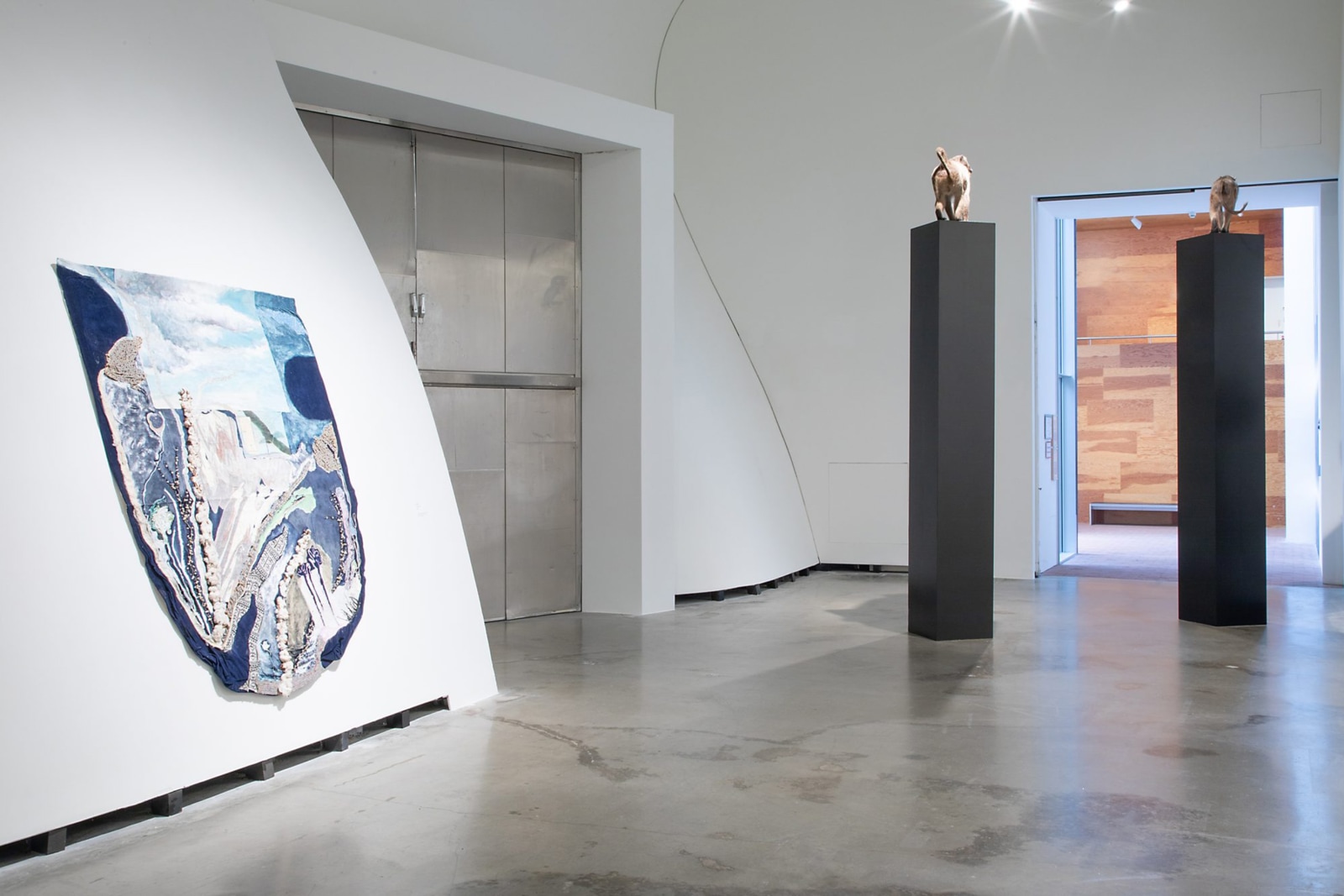
The Land: Not Without a Politic
The solo exhibition The Land: Not Without a Politic by Rodney McMillian (b. 1969 in Columbia, South Carolina, lives in Los Angeles, CA, USA) brings together paintings, sculptures, and videos from 2001 to the present. With his works, the artist sketches a picture of an (American) landscape that is never free of political and economic contexts. McMillian addresses in an exemplary way the social fabric of the USA, which is shaped through and through by categorizations according to class, economic status, race, gender, and tradition. The artist employs a number of media to do so: The exhibition includes large-format gestural paintings applied to second-hand materials, videos in which the artist himself performs, and sculptures, which are also made of “poor” materials.
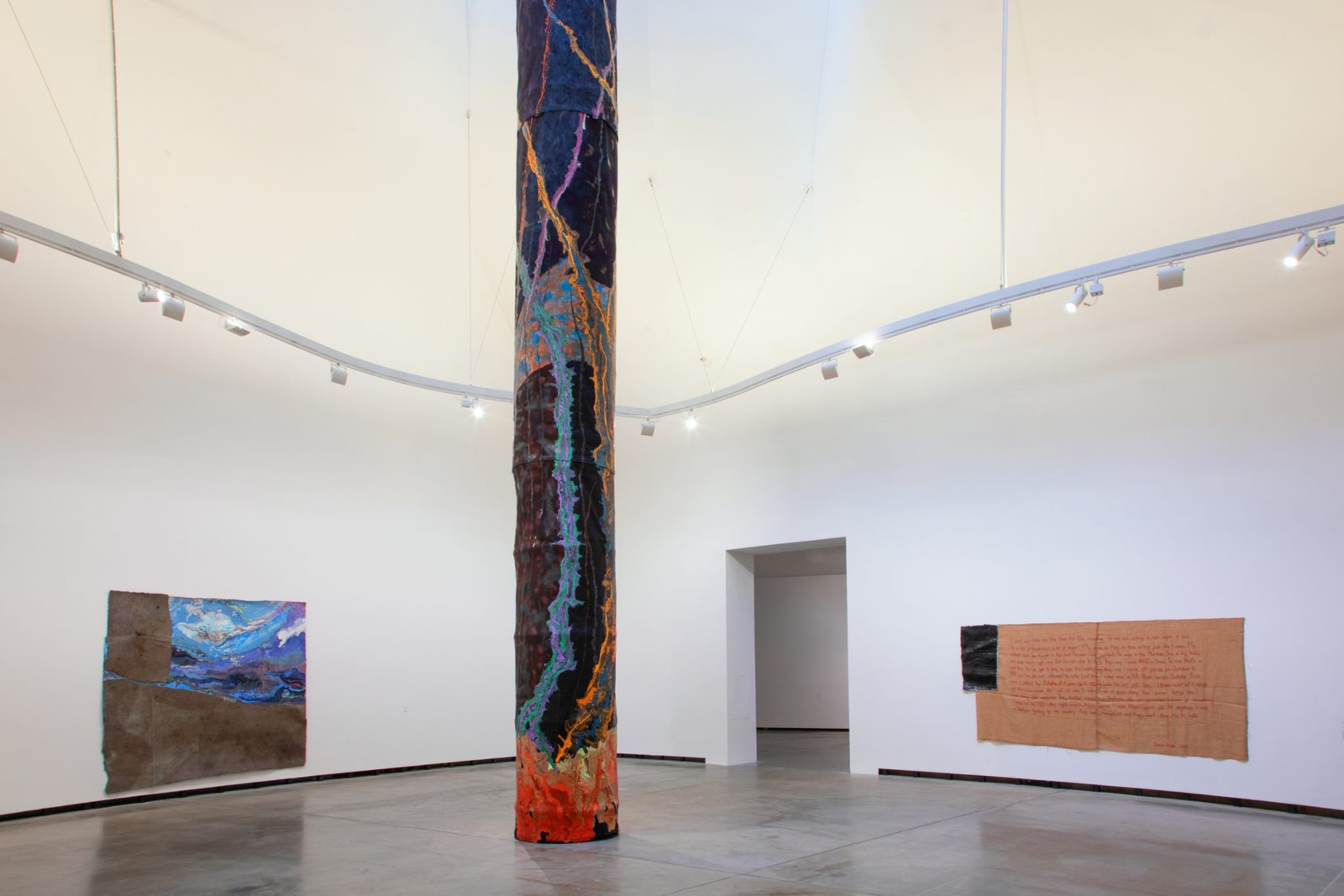
Rodney McMillian employs the medium of painting above all and alludes to the history of American landscape painting to formulate the subjects of his work. These large-format works are often abstract and expression and have evolved toward a broad spectrum of colors. McMillian employs second-hand household items such as carpets and bedsheets that already bear traces of use.
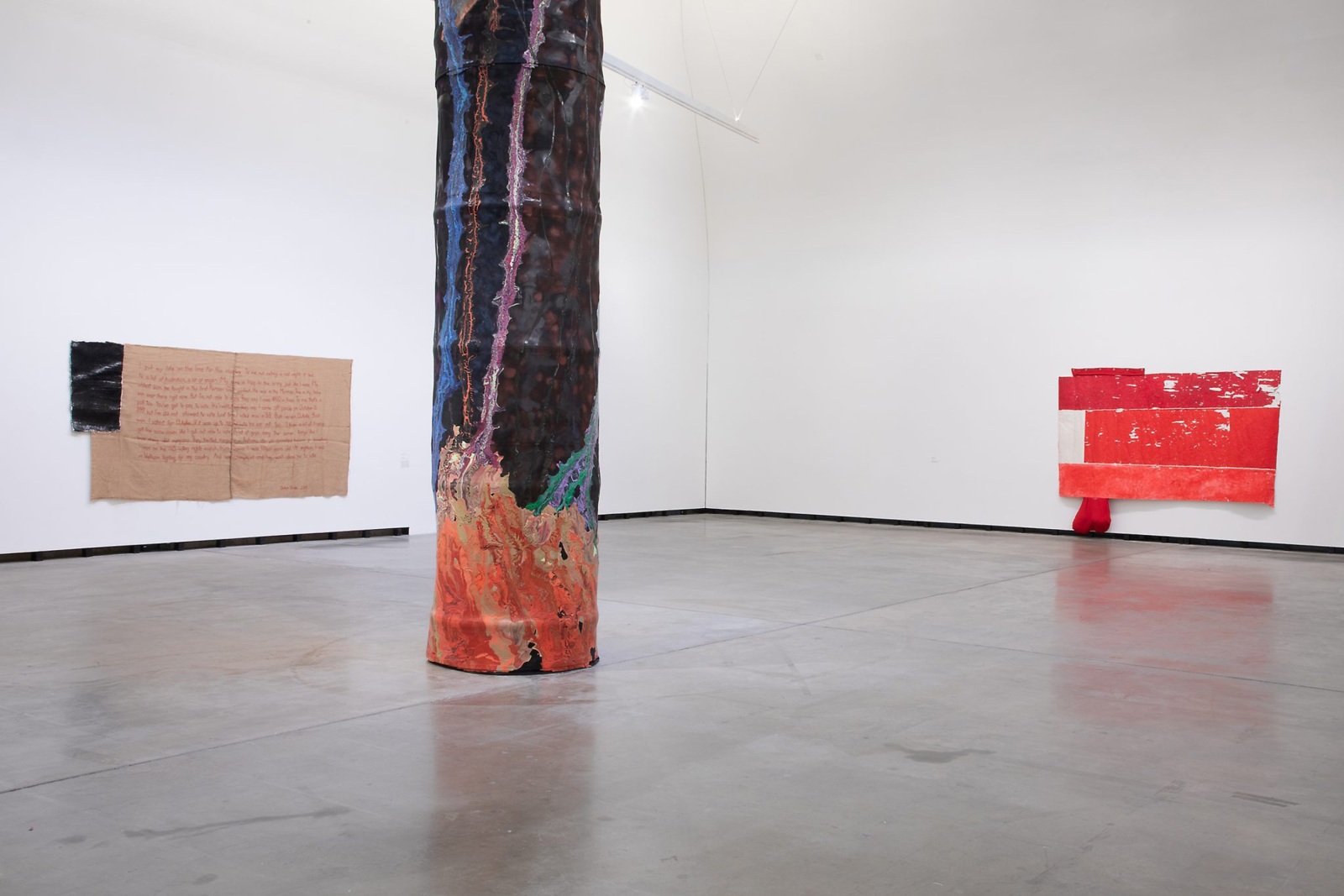
The twenty-four-meter-tall panorama shaft (2021–2022), which is composed of several painted canvases, has been installed in the central space of the Gehry Galleries. The artist created this work, which refers to the eponymous film from 1971 by the director Gordon Parks, for the Whitney Biennial in New York in 2022. Because of its size, there are few buildings in which it can be presented in its intended form.
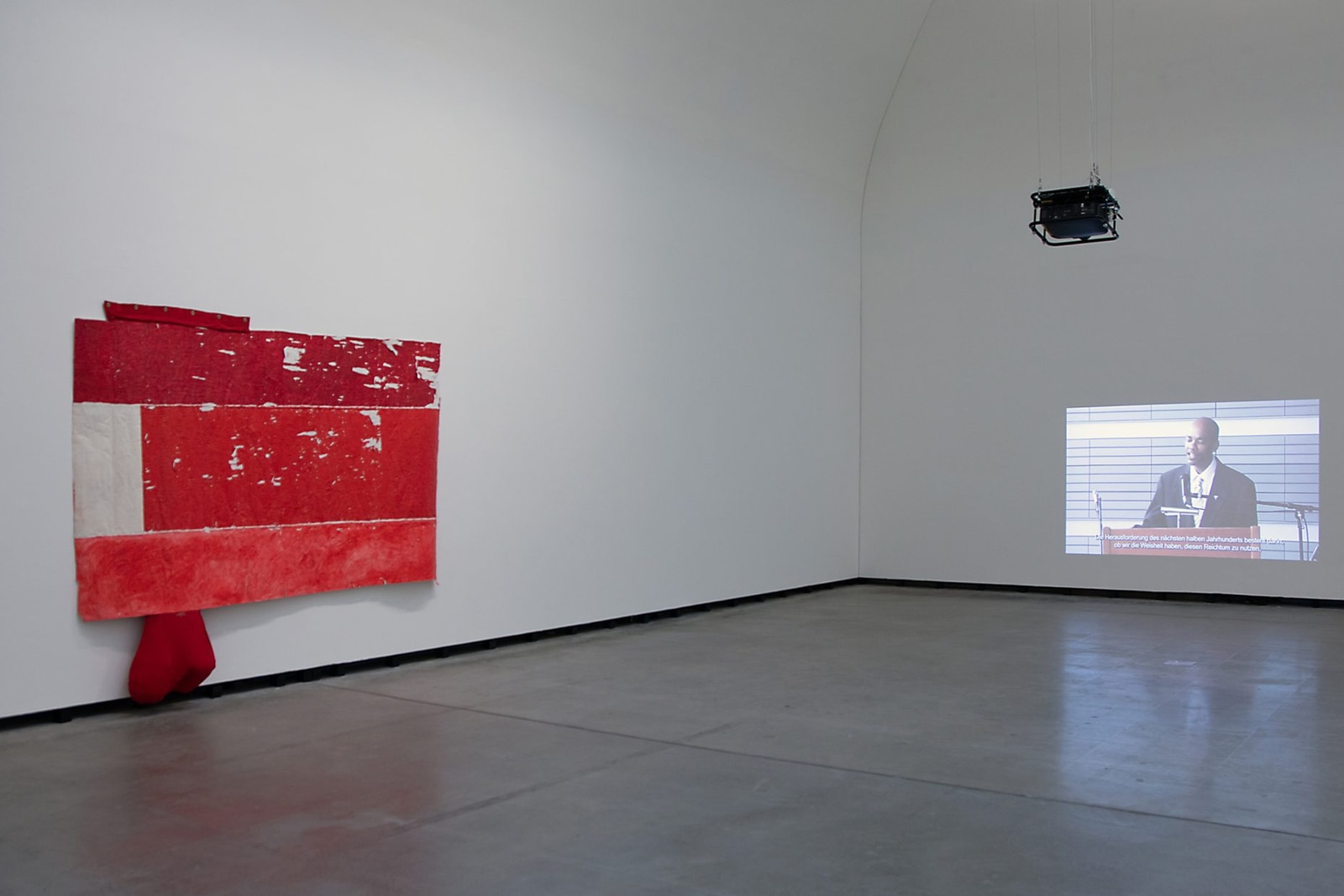
The work is surrounded by three large-format, banner-like paintings, some of which are painted on carpets and embroidered fabrics. In addition to these flag-like paintings, the video Untitled (The Great Society) (2006) can also be seen in the Central Dome. McMillian performs in character delivering a famous speech that United States President Lyndon B. Johnson gave at the University of Michigan in 1964 about his vision for a “Great Society.” In his text President Johnson describes his plans for new, pioneering social legislation to end poverty and racial injustice as well as to improve the education system and environmental policy—a society that does not exist even today.
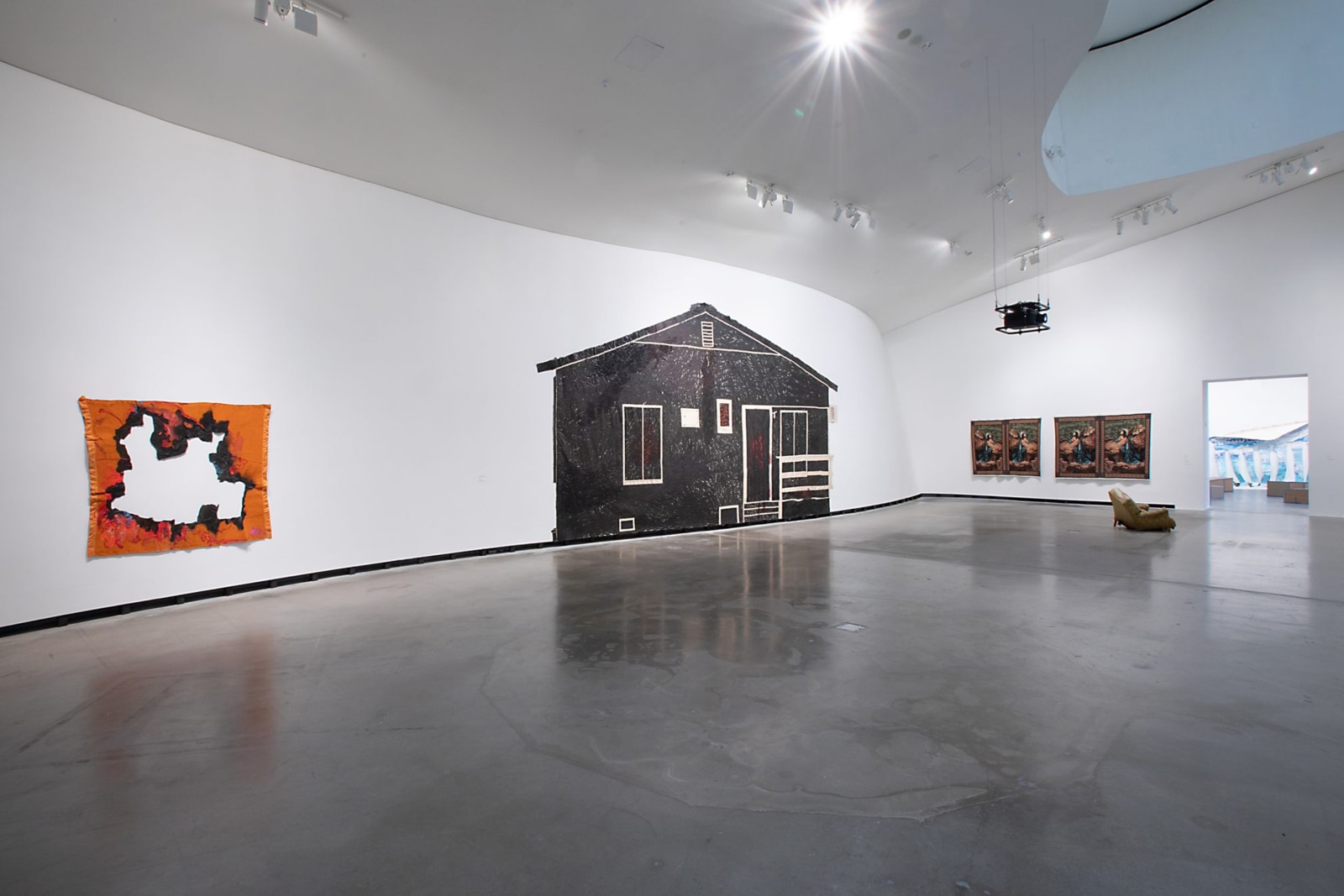
The artist performs himself in most of his films and embodies historical political contexts of the 1960s that already revealed, long before the Black Lives Matter movement, the social and psychological consequences of economic inequality of Blacks in the United States of America. The artist is also seen in the film titled A Migration Tale (2014–2015), which is presented in the Langen Gallery. The camera follows a masked character dressed in black, first sitting on a veranda in South Carolina and listening to the song “Satisfaction” (1965) by the Rolling Stones. From there he moves across the steps of the state house of South Carolina and then into the New York subway. Then he is seen dancing with other people in the streets of Harlem and sitting in Central Park. These places are typical stations of the so-called Great Migration, which millions of African-Americans lived through in the first half of the twentieth century.
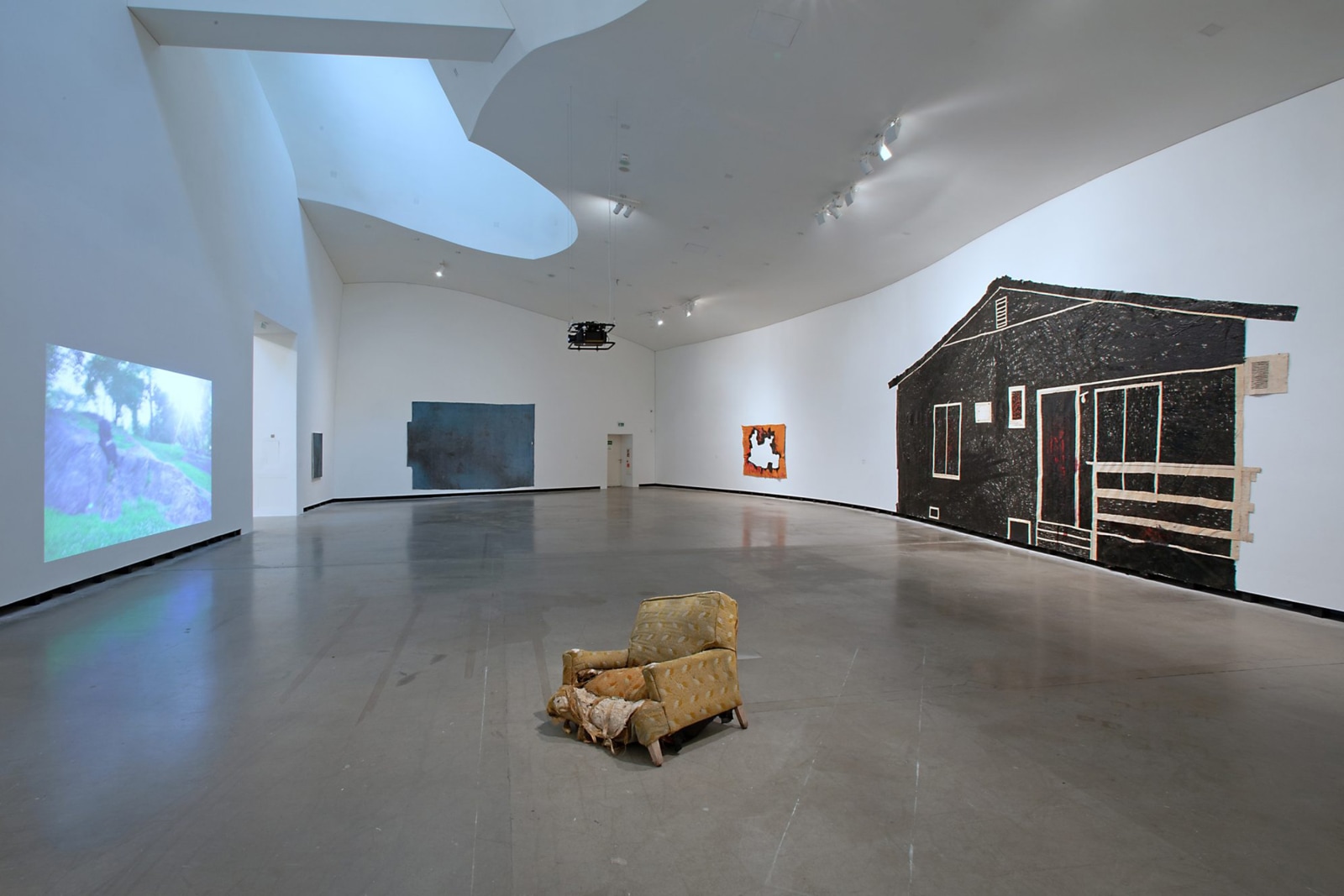
The painting Untitled (4443 Prospect Ave.) (2009) is hung opposite the film. It shows the façade of a building in which the artist was living at the time it was painted. The painting hugs the curved and slanted walls of Gehry’s museum and dominates the space. It unfolds other aspects of the theme of the home as a place of social status and refuge. By alluding to the idea of a house representing the “American Dream” it reveals the difference from the reality of social and economic inequality.
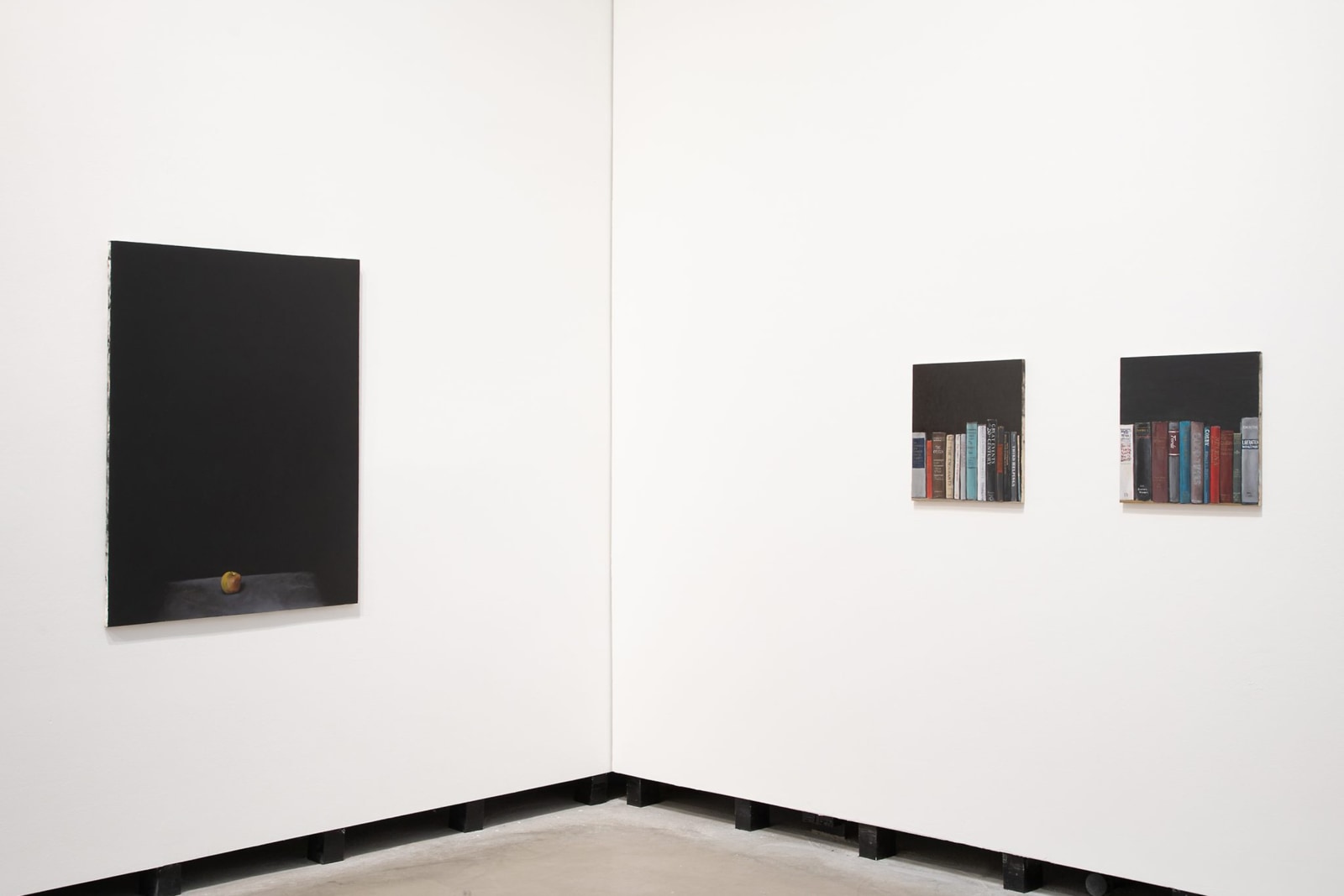
The question of representation and which people embody which symbols also plays an important role in his still lifes. History and transience can be experienced very directly: McMillian employs motifs that symbolize not only bourgeois affluence but also pictorial elements that mirror the needs of a broader society.
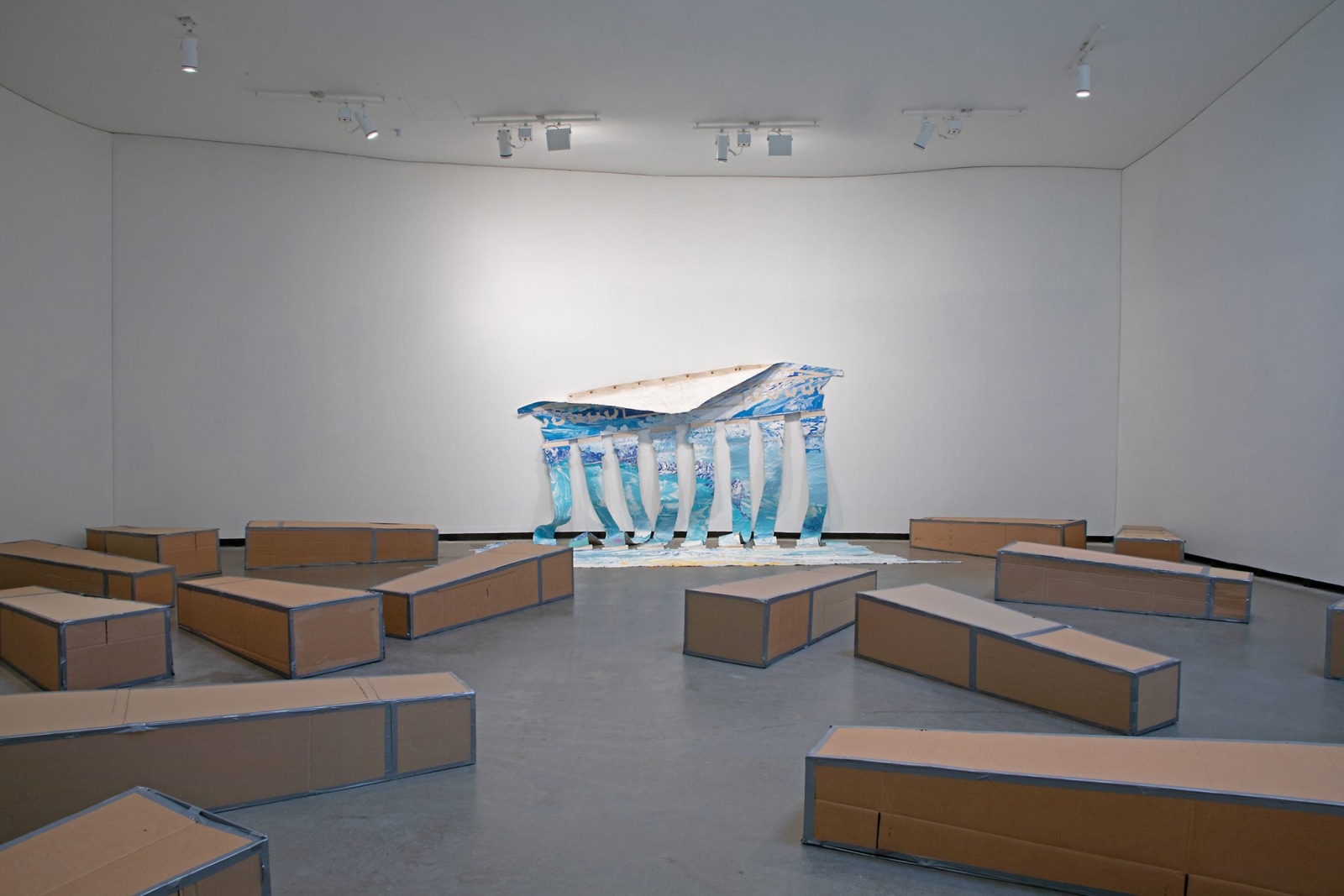
European forms of neoclassical columns and façades appear throughout the exhibition as sculptures whose symbolism of power is deconstructed. On entering the exhibition, viewers are received by two stuffed baboons standing on columns whose proportions are, not coincidentally, reminiscent of the Twin Towers.
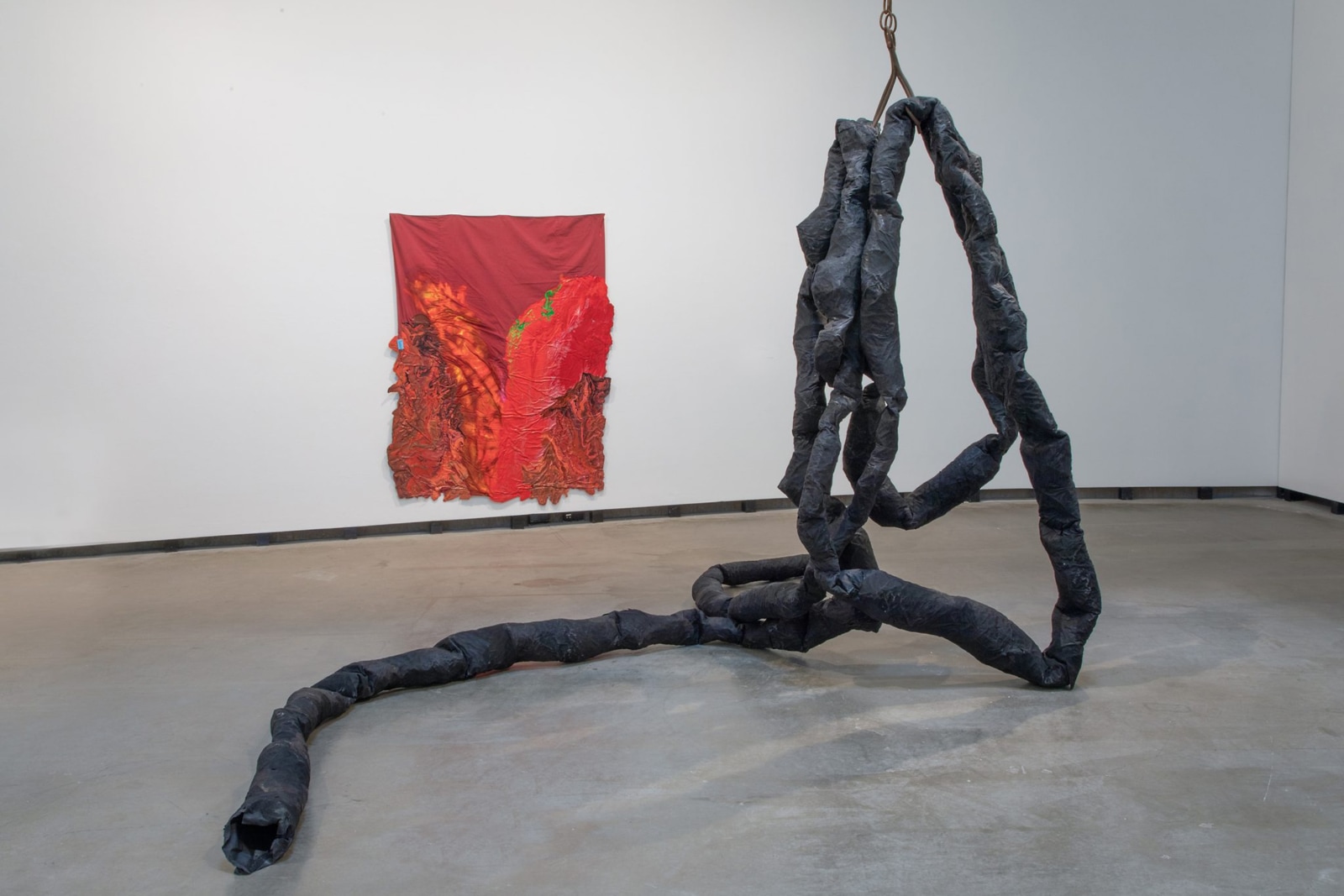
Another prominent building can be seen in Untitled (The Supreme Court Painting) (2004–2006): The unstable, collapsing columned architecture of the United States Supreme Court building has a painted backdrop. The work raises questions about whether that institution fulfills its role of representing democracy and equal rights of all citizens. The building appears in the context of 18 Boxes (2006), which recalls so-called paupers’ coffins, and the still life Bald Eagle (2002). Focuses not on the bald eagle promised in the title but on a dead canary, again playing with the shift in symbols (of power).
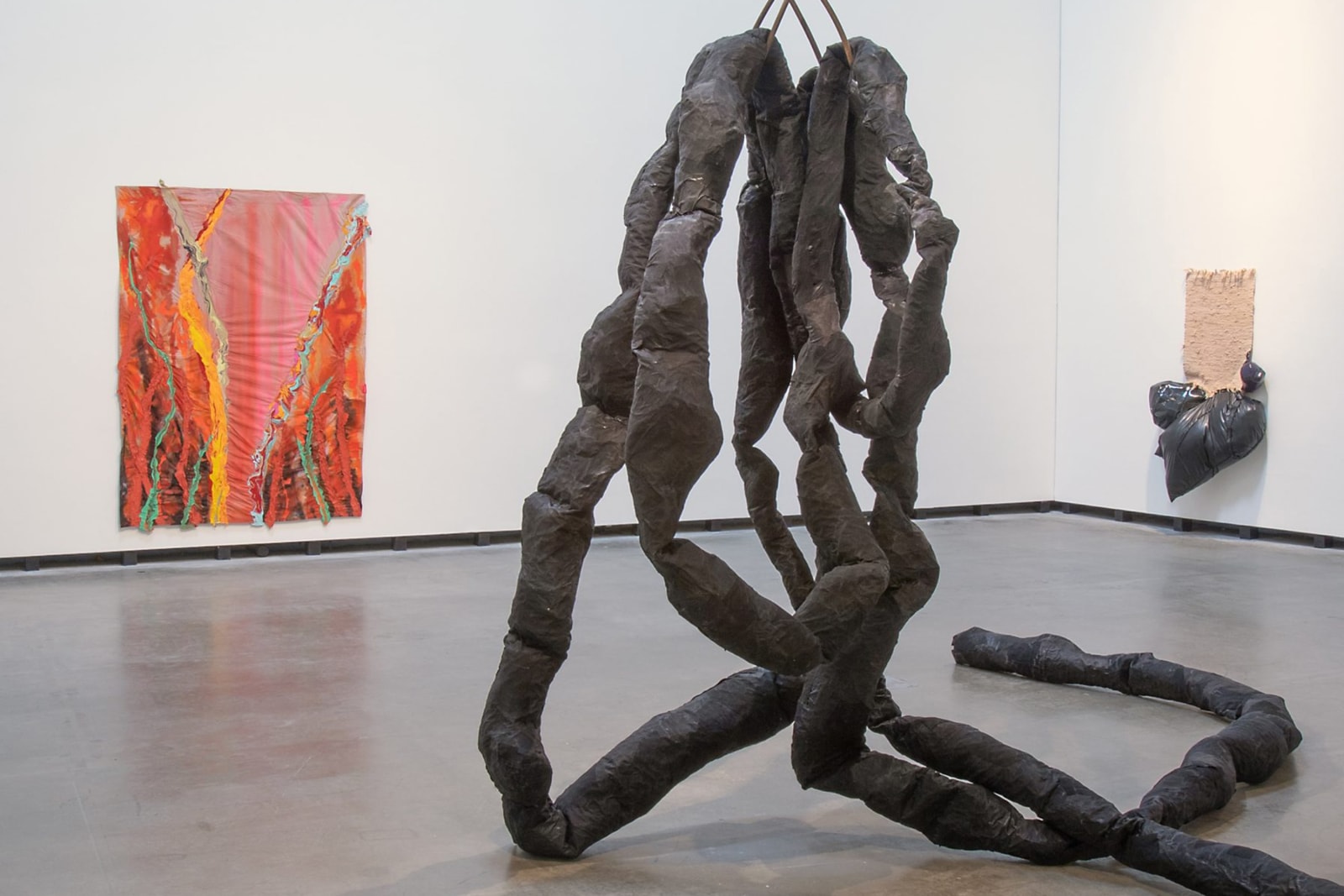
The tour of the exhibition ends with the video Preacher Man II (2017–2021). In it McMillian sits down on a chair in a subtropical environment and recites a text by the civil rights activist Kwame Ture (formerly Stokely Carmichael) from the context of the Black Power movement. Ture deconstructs power relationships in society and asks who is justified in committing violence in the name of a nation and why. It is specifically about the role of liberal forces that contribute to perpetuating existing structures and about the nature of the construct of justice and injustice.
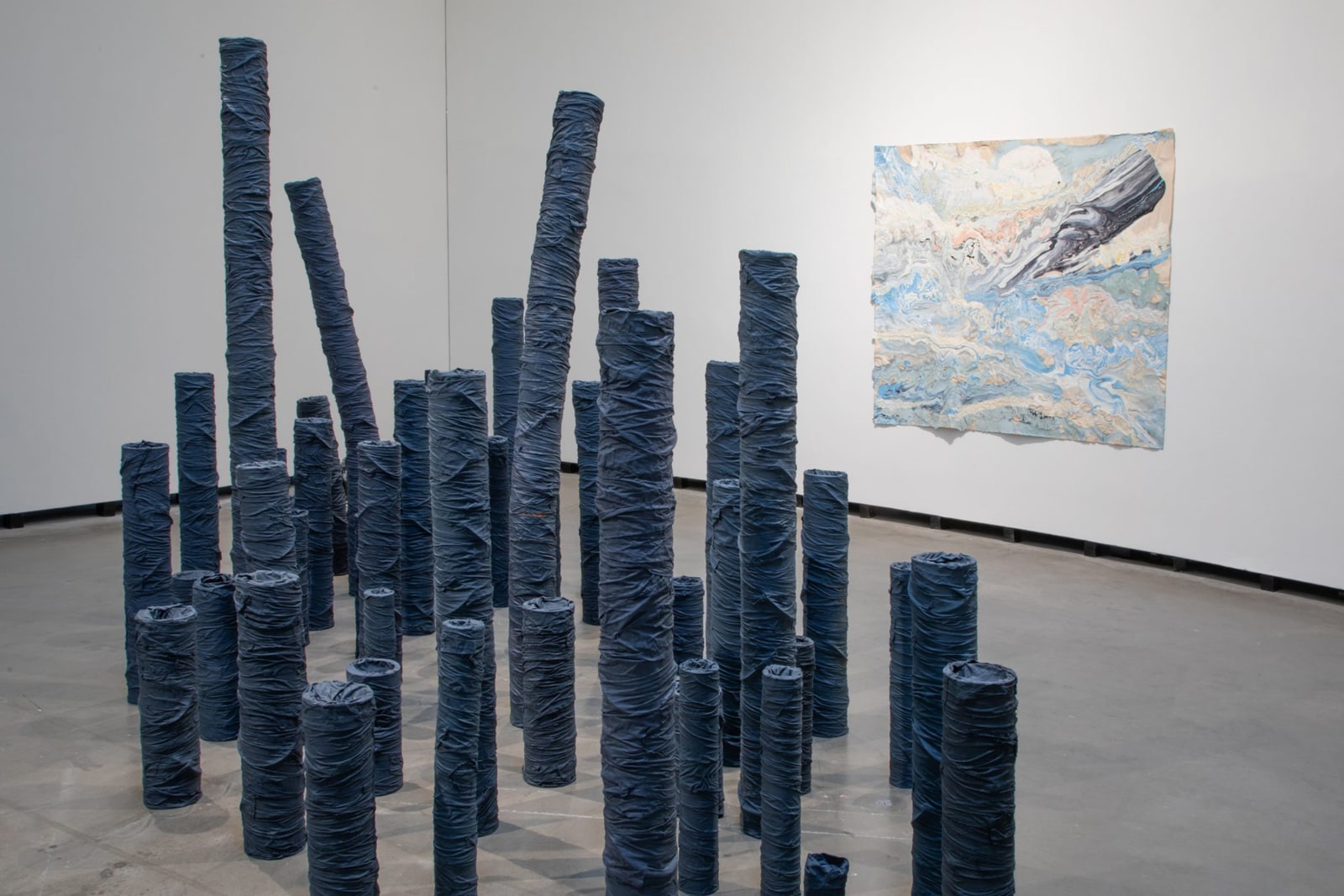
Rodney McMillian’s first solo exhibition in Europe at the Neuer Aachener Kunstverein in 2007 brought him to the attention of many collectors. Private and public collections in Germany have lent works to our exhibition, which have been combined with other, mostly more recent works from the collections in the United States, which nevertheless look as if they were created for our spaces. The content offers a stringent image of a political and artistic interest in issues of representation and nonrepresentation in both form and content.
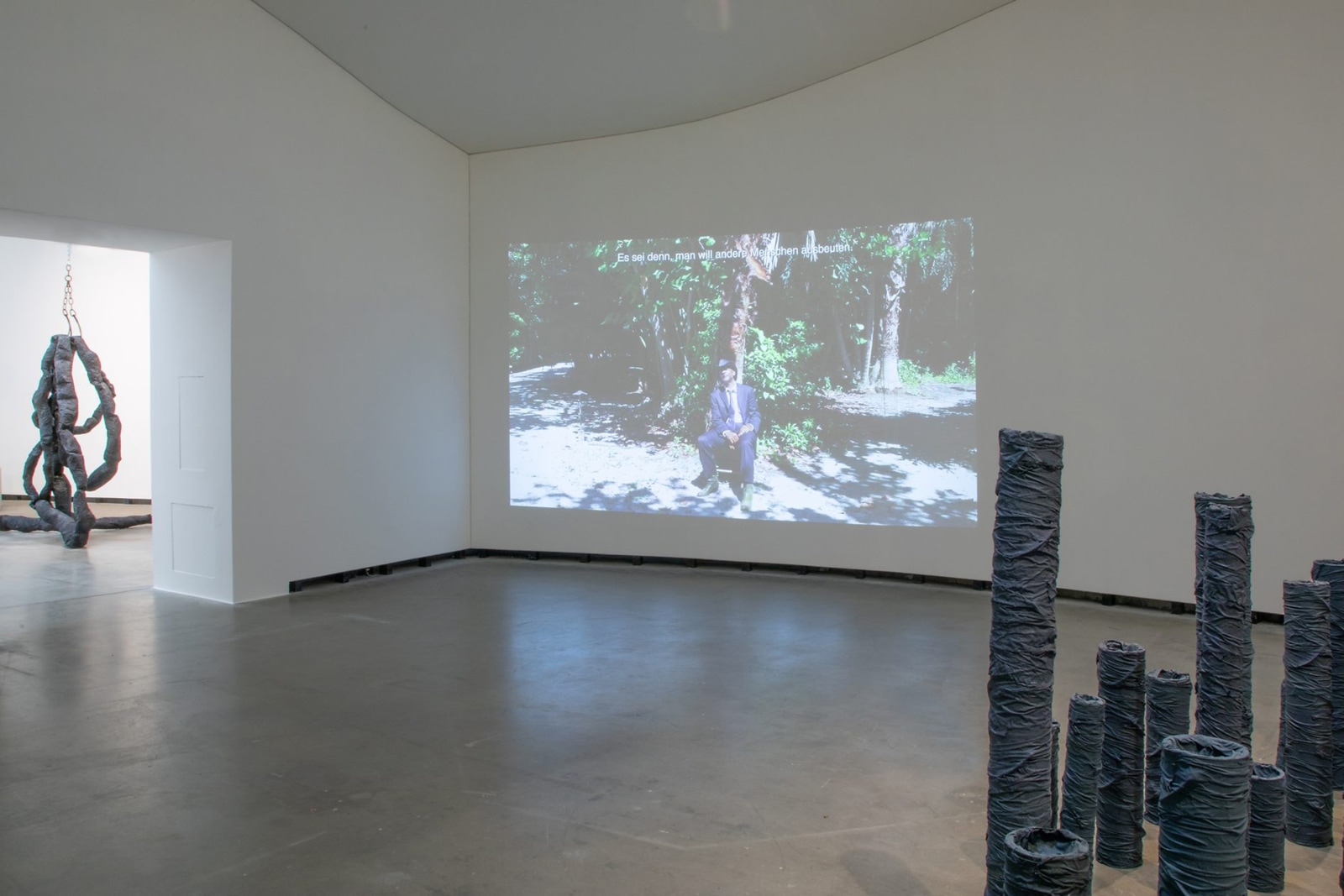
Rodney McMillian lives and works in Los Angeles. He is currently Professor and Chair of the Department of Art, Sculpture Area, of the UCLA School of the Arts and Architecture at the University of California, Los Angeles. He studied Foreign Affairs at the University of Virginia and then Fine Art at the School of the Art Institute of Chicago, the Skowhegan School of Painting and Sculpture, and the California Institute of the Arts. Important teachers include Charles Gaines, Paul McCarthy, and Michael Asher.